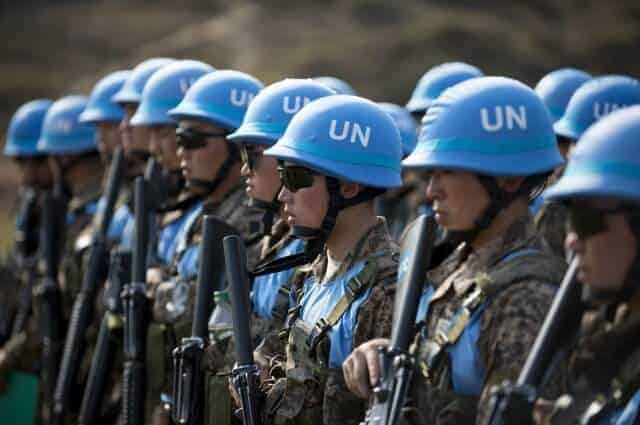The United Nations has been effective at suppressing conflict throughout its history, according to an analysis of more than 65 years of voting records conducted by Dartmouth College and The Ohio State University. The study presents evidence that the U.N. acts more than just a bystander on world events, and that it provides a forum where diplomacy reduces the chance of war.
In addition to analyzing the U.N.’s effectiveness at preventing war, the research also uses voting records to assess the organization’s impact on the spread of democracy and the building of defensive alliances.
The study appears in the journal Physica A.
“Our analysis provides evidence that the U.N. is more than just a witness of changing policy preferences,” said Scott Pauls, chair of the Department of Mathematics at Dartmouth College. “The world body impacts future decisions, particularly by suppressing conflict.”
The review of 5,143 U.N. General Assembly voting records from 1946 through 2011, found that the process of nations working together over time builds trust and facilitates fast, transparent communication that raises the chance of resolving crises peacefully.
“There is more nuance in voting records than was previously thought,” said Skyler Cranmer, professor of political science at The Ohio State University. “The evidence demonstrates that the U.N. is more effective at achieving its mandate of avoiding wars than many experts think.”
The research assesses the priorities that shape state actions as opposed to treating voting records as a reflection of those priorities. Up until now, existing research on the U.N. mostly considered voting patterns descriptively or addressed the impact of factors like foreign aid contributions on member voting.
From the voting records, researchers identified historic voting alliances – labelled as “affinity communities” – consisting of long-term macroclusters and short-term microclusters that provide the basis for coalition building and cooperation.
Macroclusters named in the research are the more enduring U.N. voting alliances. One macrocluster identified is comprised of the U.N.’s Western European and Others Group as well as Russia, Japan, China and some Eastern European countries. The second, much larger group comprises the balance of U.N. members.
According to the study, there have been 15 times in the U.N.’s history when the two macroclusters have merged into a voting community including all but a few outlier states. In most of these instances, the United States and a small number of other countries formed a group separated from the rest of the world as a result of divisive votes on issues like the Middle East and human rights.
Microclusters are more volatile voting alliances that form and dissolve in response to faster moving political dynamics. The high level of voting agreement within microclusters translates into the largest degree of conflict suppression.
“While the U.N. obviously does not prevent all armed conflict, the affinity communities reduce the probability of conflict,” said Pauls. “It is through this mechanism of intensified diplomatic interaction that the U.N. has historically been able to better achieve its primary goal of maintaining international peace and security.”
Additional results from the research include:
-
- – affinity communities are reflective of transitions from autocracy to democracy, but do not play a significant role in the spread of democracy;
– affinity communities correspond to an increased possibility of defensive cooperation, but the research does not demonstrate that voting alliances translate to defensive alliances;
– the research confirms a policy divide between developed and less developed countries that is occasionally broken occasionally when the rest of the world stands against the United States.
If our reporting has informed or inspired you, please consider making a donation. Every contribution, no matter the size, empowers us to continue delivering accurate, engaging, and trustworthy science and medical news. Independent journalism requires time, effort, and resources—your support ensures we can keep uncovering the stories that matter most to you.
Join us in making knowledge accessible and impactful. Thank you for standing with us!

